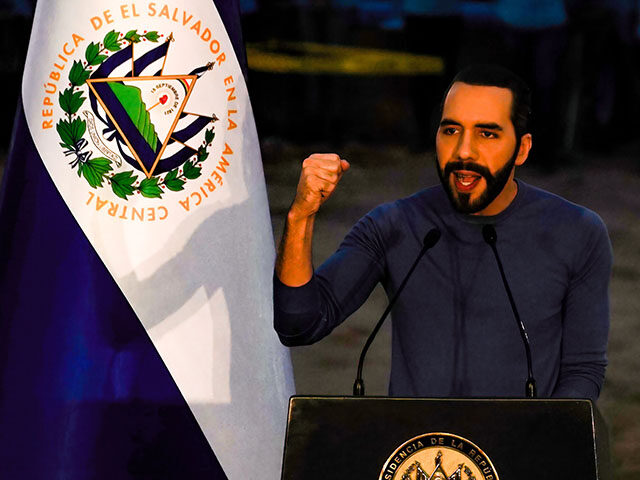El Salvador’s ruling New Ideas (NI) Party confirmed on Monday that President Nayib Bukele registered his candidacy for the upcoming 2024 presidential election despite the nation’s constitution explicitly forbidding a current president from seeking reelection.
“We communicate to the Salvadoran people that President Nayib Bukele and Vice President Félix Ulloa are already registered as pre-candidates for President and Vice President of the Republic of El Salvador, in the largest party in the history of El Salvador,” the New Ideas party announced through its official Twitter account on Monday.
Bukele has not yet publicly commented on the matter at press time but did repost the announcement on his official Twitter account.
Bukele first announced his intention to seek reelection in September, which caused controversy at home given the move’s unconstitutionality.
El Salvador’s constitution not only explicitly prohibits presidential reelection, but also heavily penalizes “those who commit acts, proclamations or adhesions to promote or support the reelection or continuation of the President of the Republic, or use direct means to that end.” The constitution requires the elimination of multiple citizens’ rights in response to such a violation.
The constitution also contains provisions that prevent the articles pertaining to the form and system of government, the territory of the Republic, and presidential succession from being amended or modified “in any case.”
Bukele’s pathway to reelection relies on a controversial interpretation of Article 152 of the constitution that the nation’s Supreme Court of Justice issued in September 2021. The article states that a person may not run for president if they have “held the office of President of the Republic for more than six months, consecutive or not, during the immediately preceding period, or within the last six months prior to the beginning of the months prior to the beginning of the presidential term.”
The top justices, all of whom had been replaced by the pro-Bukele majority in Congress prior to the ruling, argued that, while the constitution explicitly states that a person who has held office for more than six months “during the immediately preceding period” may not be a candidate for President, the prohibition is, according to them, directed to the candidates and not to the president. Therefore, the ruling reasoned, a sitting president is able to run for a second consecutive five-year term so long as they resign six months before the end of their term.
Bukele, whose current term will end on June 1, 2024, will have to resign from the presidency at a date no later than November 30 to comply with the Supreme Court of Justice’s ruling and thus be able to run in the upcoming February 4, 2024, election.
Prior to the controversial ruling, any president of El Salvador had to wait a period of ten years — two presidential terms — after the end of their term before being able to run for president again.
Bukele is one of the most popular politicians in the history of the country, currently boasting a 90 percent approval rating. A poll taken in March found that nearly 70 percent of Salvadorans supported Bukele standing on the ballot for re-election despite the constitution forbidding it. Bukele’s popularly largest results from a fierce crackdown on El Salvador’s gang violence fueled by the imposition of a “state of exception,” a state of near martial law, that allowed the imprisonment of thousands of suspected gang members and, according to local accounts, has significantly eliminating the pervasive gang presence in the regular lives of Salvadoran civilians.
Bukele began his term by making the adoption of the Bitcoin cryptocurrency the cornerstone of his administration and vowing that Bitcoin would allow El Salvador to develop lucrative tourism destinations on its shores, known worldwide as potential surfing destinations marred by gang violence. The gang war has eclipsed Bitcoin in Bukele’s messaging to the public, however, particularly after the country lost tens of millions in Bitcoin devaluation last year.
In 2013, when he was serving as mayor of the Nuevo Cuscatlán municipality, Bukele, who is now seeking reelection, expressed during an interview with Nicaraguan media some apparent support for the constitutional term limits.
“The Constitution does not allow the same person to be president twice in a row. He can be president 80 times if he wants, but not in a row,” Bukele said at the time.
If reelected next year, Bukele will be the first Salvadoran president to have served two consecutive terms despite the technicality of his upcoming resignation.

COMMENTS
Please let us know if you're having issues with commenting.